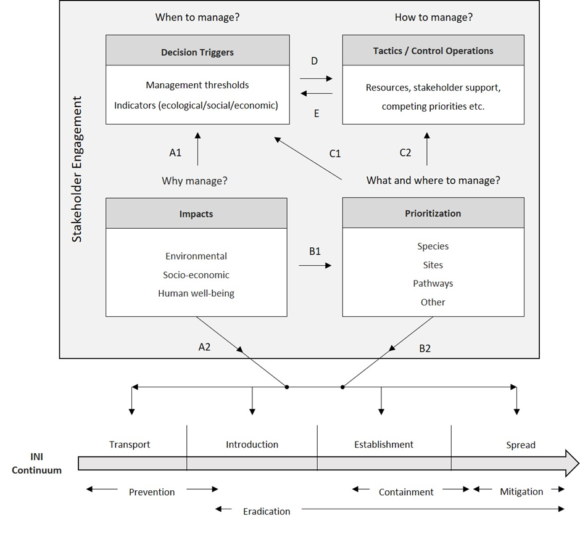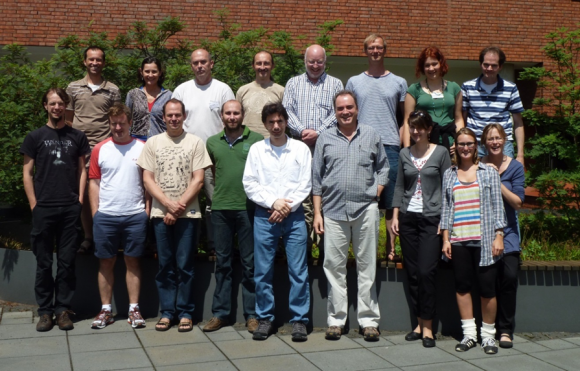The removal of individuals to eradicate or control invasive alien species (IAS) is an effective means of reducing their deleterious impacts on native biodiversity and human well-being. Removing individuals is, however, not always possible, for instance when populations invade private areas to which the owners do not grant access to IAS managers.
In a paper led by Prof Sandro Bertolino (University of Turin, Italy) and recently published in the Journal of Environmental Management, the authors, including C∙I∙B former PhD student Giovanni Vimercati (now postdoc at the University of Fribourg, Switzerland) and C∙I∙B Steering Committee member Dr Piero Genovesi, investigated how and under which circumstances restricted access to private areas limits invasive species management.
The paper described three recent case studies in Italy in which the owners of a few private properties invaded by the Eastern grey squirrel (Sciurus carolinensis) refused, for a personal gain or presumed internal security, to provide access to IAS managers. In one case, this refusal delayed the local eradication of grey squirrels, whereas in the other two cases the owners’ unwillingness to grant access prevented the complete eradication of the species in the area.
The paper also reviewed the literature and identified 29 cases in which restricted access to private areas hindered management of invasive species across different regions and taxonomic groups. In accordance with the literature review, the various reasons provided by the owners for denying access to managers and the actions taken or suggested by the latter for overcoming restricted access were recorded.
The authors found that in many cases, owners refused to grant access due to a general perception of mistrust or opposition deriving from limited engagement by managers. Mistrust or opposition often jeopardize management activities, with significant negative consequences on the management of both invasive plants and animals.
The authors also found that bottom-up approaches aiming at involving stakeholders can increase the possibility to achieve IAS eradication or control, although appropriate legislation remains pivotal to enforce eradication in case of non-cooperative behaviour.
Co-author Dr Giovanni Vimercati explains:
“We observed that only in a few cases, the access has been denied because the owners disagreed with the methods adopted to remove invasive individuals or because the invasive species itself was considered valuable, for example for hunting or ornamental purposes. In most cases, the owners refused to grant access as they were not sufficiently informed about the target invasive species or believed that the eradication or control was simply unfeasible.”
“This suggests that great effort should be dedicated to inform private citizens about biological invasions and to engage them in invasive species management; enforcing eradication to reluctant landowners via adequate legislation could still be useful in some specific situations, but only as a last resort.”
Read the full paper
Bertolino, S., Vimercati, G., Paoloni, D., Martinoli, A., Wauters, L. A., Genovesi, P., & La Morgia, V. (2021). Restricted access to private properties limits management of invasive alien species: A literature review and case studies. Journal of Environmental Management, 297, 113318. DOI: https://doi.org/10.1016/j.jenvman.2021.113318
For more information, contact Giovanni Vimercati at gvimercati@outlook.com




